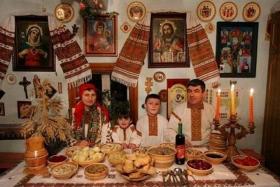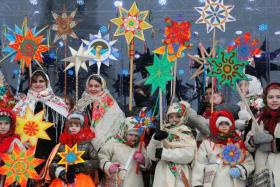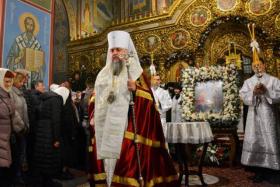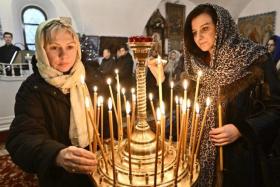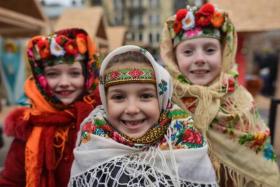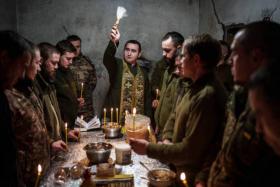Christmas in Greece
 The Christmas period in Greece starts on Aghios Nikolaos Day, 6th December, dedicated to Saint Nicholas, a well-known saint who is said to bring gifts to children, lasting until Epiphany, 6th January, when Jesus Christ was baptised by John the Baptist in the River Jordan. Dating back to AD 354, when the birth of Jesus was declared to be celebrated on 25th December, it has become one of the most important holidays for most Greeks. On Christmas Eve, most families gather together to enjoy festive meals and share carols called 'Kalanda', one for Christmas Eve, one for New Year's Eve and one for Epiphany on 6th January. Some Orthodox Greeks, including the monks on Mount Athos, still celebrate Christmas on 7th January, according to the old Julian calendar which was changed in 1923.
The Christmas period in Greece starts on Aghios Nikolaos Day, 6th December, dedicated to Saint Nicholas, a well-known saint who is said to bring gifts to children, lasting until Epiphany, 6th January, when Jesus Christ was baptised by John the Baptist in the River Jordan. Dating back to AD 354, when the birth of Jesus was declared to be celebrated on 25th December, it has become one of the most important holidays for most Greeks. On Christmas Eve, most families gather together to enjoy festive meals and share carols called 'Kalanda', one for Christmas Eve, one for New Year's Eve and one for Epiphany on 6th January. Some Orthodox Greeks, including the monks on Mount Athos, still celebrate Christmas on 7th January, according to the old Julian calendar which was changed in 1923.
In ancient Athens, the festival of 'Kronia' used to take place on the 12th day of Hekatombaion, and coincides with Christmas celebrations. After Greece gained its official independence in 1832, the first appointed king of the new country, Othon, a Bavarian, introduced the Christmas tree in 1833. Until then, the Greeks had decorated Christmas boats in honour of Saint Nicholas, patron saint of sailors. Happily, the tradition is now resurgent, as island folk and coastal communities like Ermioni decorate holiday boats, called 'Karavaki' in Greek, in appreciation to St Nicholas for bringing their sailors around the world home safely for the holidays. The tradition has spread throughout Greece and now boats in all shapes and sizes are considered mainstay Christmas decorations in people's homes and in public squares throughout Greece. Each year, the coastal town of Ermioni continues to decorate the place with additional bright lights, illuminated trees, boats, children's villages and decorations throughout the town and waterfronts.

Many modern Greeks have now travelled to Western Europe or the U.S.A. to experience the Christmas period, or seen numerous Hollywood movies depicting the Western view of Christmas, so have been influenced as to how they celebrate Christmas today. Ultimately, Christmas in Greece is about celebrating old family traditions while embracing its long-standing religious history.
This year, 2023, more Orthodox Christians than ever will celebrate Christmas on 25th December. For the very first time, Ukrainian Orthodox Christians, as well as Greek Catholics in Ukraine, will celebrate Christmas according to the new Gregorian calendar, instead of the old Julian calendar where Christmas Day fell on 7th January. Christmas was largely erased from the Ukrainian calendar for most of the 20th century due to the Soviet Union's atheist and anti-religious policies, but many of its old traditions survived and are being revived again. For the first time since 1917, Christmas Day in Ukraine will be officially celebrated with most of the Western world on 25th December. The Orthodox Church of Ukraine, which does not recognise the authority of the Russian state-run church, was granted full recognition in 2019 by the Ecumenical Patriarch of Constantinople, Orthodoxy's top authority.
